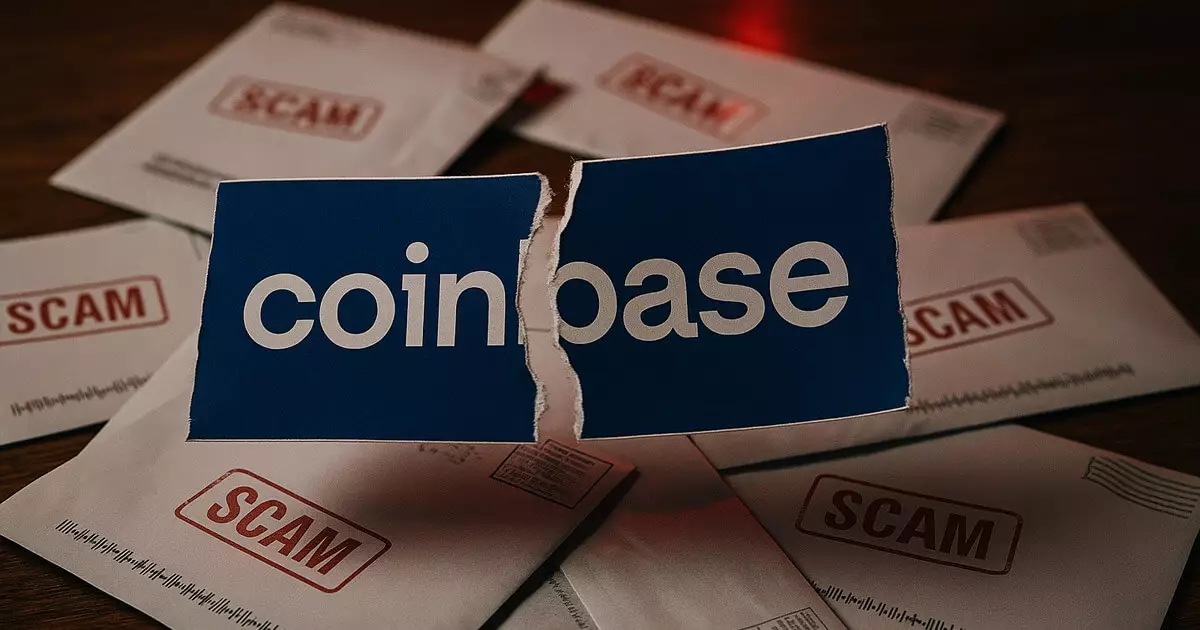The recent data breach at Coinbase is nothing short of a nightmare that continues to unravel for its victims. What initially appeared to be a concerning digital vulnerability has now exploded into a disturbing new manifestation: victims receiving fraudulent letters in the mail, exploiting their compromised personal information. This violation breaks from the norm of typical phishing scams that predominantly occur online, revealing a new and terrifying front in the battle against identity theft and cybercrime.
Individuals like Mike Dudas, the founder of The Block, are suddenly thrust into a precarious position, receiving letters that not only contain their personal details but also promise identity protection services from Coinbase, alongside IDX. This insidious move illustrates a calculated approach by scammers who are taking advantage of the chaos following the breach, casting a wider net of deception by using trusted names to trick victims into providing even more sensitive information.
The Shift from Digital to Physical: A New Phishing Frontier
What alarms me most about this shift to physical mail is not just the sheer audacity of criminals, but the very real implications of having one’s private information utilized in such a brazen way. The breach exposed sensitive data from 69,461 users, including names, home addresses, and partial Social Security numbers. Despite Coinbase’s assurances that passwords and crypto funds are secure, the truth is that users are now potential targets for a variety of fraudulent schemes, both online and offline.
Even worse, the breach’s origins—traced back to bribed customer support contractors—underscore a systemic issue within the industry. While employees in sensitive positions should be upholding security protocols, many appear to be neglecting these vital responsibilities for personal gain. The repercussions of lax security extend beyond financial loss; they can lead to severe reputational damage and a pervasive sense of vulnerability among users.
A Call for Accountability and Vigilance
It’s shocking that Coinbase has not yet issued an official statement addressing this unconscionable use of victims’ data in mail-based scams. Instead, they seem to be focusing on enhancing security measures and offering rewards for information. While these steps are nice, they hardly reflect accountability for the breach that placed so many individuals at risk. Customers deserve transparency and reassurance that their safety is the company’s priority, moving forward.
Furthermore, the marketplace for identity protection has now become a potential trap for victims, who, in their vulnerability, may turn to these services out of necessity. The letter from scammers purporting to be from IDX highlights this danger—the very services intended to protect victims can also expose them to further exploitation. This vicious cycle demands immediate attention from both Coinbase and law enforcement agencies.
Scam artists thrive on the chaos created by breaches such as this one, manipulating fear and uncertainty to their advantage. Users need to be vigilant, be aware of potential scams, and protect their personal information. The Coinbase breach is a stark reminder that in an age of digital transformation, vigilance—both online and off—has become a fundamental part of personal security. Until we see deeper systemic changes, the threat of phishing and subsequent fraud remains an omnipresent danger for the unsuspecting public.

